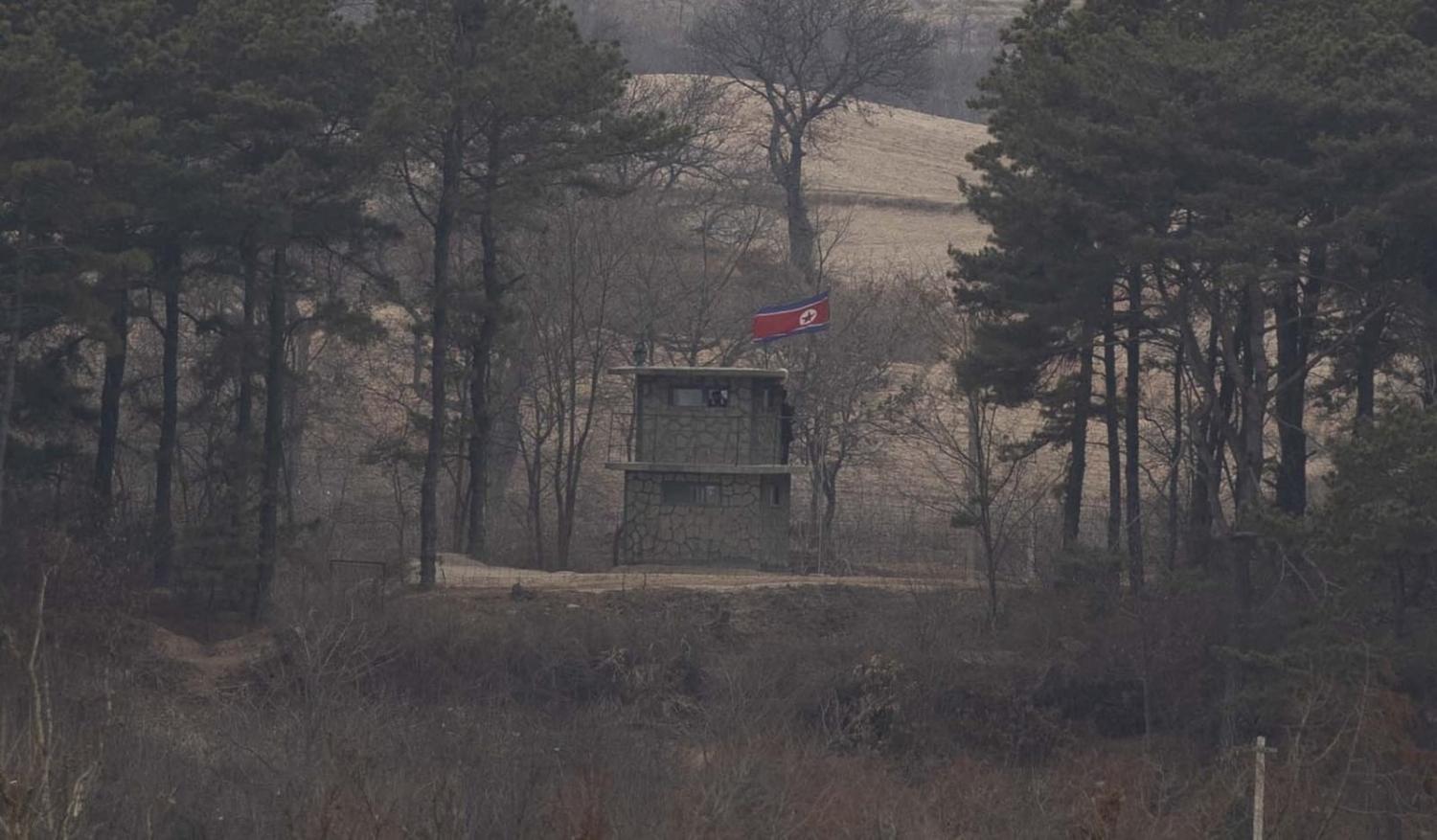The shock of the Hamas 7 October attack on Israel has reverberated to South Korea, sparking a debate about how vulnerable the country could be to a similar surprise attack from neighbouring North Korea.
Kim Yung-ho, recently appointed South Korea’s unification minister, drew a comparison with Hamas rocket attacks and the prospect of a deadly North Korean artillery barrage. South Korean military chiefs also speculated about the prospect of North Korea using “Hamas-style tactics” to occupy border areas or take hostages, warning that Israel’s surveillance system along the border with Gaza had been overcome, and its intelligence agencies had failed to anticipate the attack. The United States and South Korea also launched joint military drills last week focused on detecting surprise attacks.
The concern has renewed calls from the incumbent conservative South Korean Yoon Suk-yeol government to reconsider the 2018 inter-Korean military agreement, which creates no-fly zones around the demilitarised zone separating South and North Korea but are seen to hamper the South’s surveillance capability.
South Korea’s concern is understandable. In the past, North Korea has launched several surprise attacks against the South, most notably the 1968 failed assassination attempt against South Korean President Park Chung-hee. In 2010, North Korea sank the South’s Cheonan warship and shelled Yeonpyeong Island, killing 48 South Korean soldiers and two civilians.
As with Israel, South Korea’s lack of strategic depth makes any North Korean surprise attacks costly and runs a high risk of crisis instability as both sides want to go first. With 200,000 special forces personnel and 1,000 artillery pieces along the inter-Korean border, North Korea can turn Seoul into “a sea of fire”.
However, should South Korea worry about a North Korean surprise attack?
North Korea possessing the capability to carry one out does not mean that an attack is desirable. Ongoing discourse on South Korea’s lack of preparation for such a scenario stresses the capability side of the deterrence equation, that South Korea developing a low-altitude missile defence system and augmenting its surveillance capability along the border can deter a North Korean surprise attack. But such an emphasis misses the political side of the equation. North Korea will not carry out a surprise attack unless it can achieve any tangible political benefits.
North Korea’s surprise attack against the Cheonan warship in March 2010 was mostly a retaliation against the South’s conservative Lee Myung-bak administration’s (2008-13) refusal to hold a summit with the then North Korean leader Kim Jong-il, and the South Korean navy firing at a North Korean patrol boat crossing the maritime northern limit line in late 2009. North Korea’s motivation behind the Yeonpyeong shelling in November 2010 was to respond to a South Korean artillery exercise on the island several hours earlier and the North’s perceived violations of its territorial waters. By carrying out the attacks, Pyongyang expected to show Seoul the costs of a confrontational policy towards North Korea, which Lee adopted after he deemed his liberal predecessor Roh Moo-hyun’s (2003–08) engagement policy a failure. It was the unfriendly political relations between the two Koreas, not the North’s military capability, that explained North Korea’s decision to attack.
North Korea is not suicidal. When Pyongyang carried out the two attacks, it was also afraid of those limited attacks spiraling out of control. Both the Cheonan and the Yeonpyeong attacks were against isolated targets at sea that would neither pose any significant threats to the South Korean way of life nor trigger the US military commitment to South Korea. Consequently, despite Seoul’s wish to retaliate, the United States talked its junior ally out of such a plan for fear of escalation.
Had North Korea wanted to launch a surprise attack to undermine South Korea’s security, in the manner Hamas sought to do with Israel, it would have used its commandos to assault land targets or its artillery to coerce Seoul into submission. The limited nature of North Korea’s attacks suggested that sending South Korea a message was likely the main objective. Importantly, the fact that both North and South Korea have nuclear deterrence (North Korea via its arsenal, South Korea via the alliance with the United States) strengthens the stability-instability paradox. The chance of the two countries fighting a major war decreases, while the chance of them having minor clashes increases because of the high costs of a nuclear exchange.
Surprise, by definition, defies expectations. Even if South Korea militarily prepares for all scenarios of a North Korean surprise attack, there is little chance it can stop one if the North is so committed to the cause that no kind of retaliation can deter it. Rare attacks can still occur despite the military balance being heavily in Seoul’s favour.
The Yeonpyeong shelling was North Korea’s first attack on South Korean territory after the Korean War ended in 1953. Factors that motivate North Korea to attack the South may not be clear to Seoul, making policies that augment South Korea’s defence provocative to the North. For instance, scrapping the 2018 inter-Korean military agreement might bolster South Korea’s surveillance, but North Korea might see the move as a provocation and carry out a limited attack to signal its anger at the South Korean ruling conservatives, like it did in 2010.
Deterrence is about shaping the enemy’s perceptions of gains as much as boosting one’s own military power. South Korea has legitimate reasons to worry about a surprise attack, but it should seek to allay such fear beyond boosting its military capability. North Korea’s military capability alone tells little about when and why it attacks the South. Shaping North Korea’s political calculations by embracing diplomacy should be the preferred option.
And this means not letting the fear of being unable to deter a North Korean surprise attack erase past diplomatic progress. Showing Pyongyang that it has more to gain from engagement than provocation is the best deterrent to surprise attacks.

